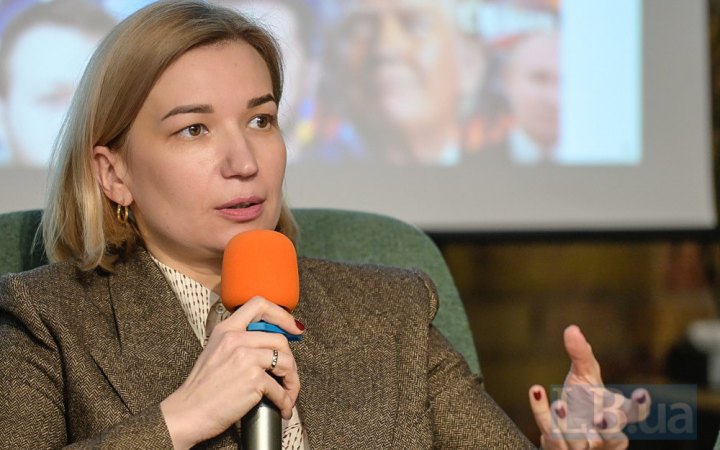Elections are a period of polarisation, when each political group “wrests” its potential share from the undecided electorate. The more heated the debate, the more likely the scenario of separating “friends” from “foes” and gaining support by vote becomes. Therefore, it is obvious that elections cannot unite anyone — they divide, explained Olha Ayvazovska, Chair of the Board of the civil network OPORA, during the discussion “Ukraine’s red lines. How to maintain subjectivity in dialogue with the US and negotiations with Russia”, organised by the New Country project of lb.ua and EFI Group.
She noted that another question is whether this ideological disconnect is positive or negative. If there is a culture of communication and understanding of red lines, then even polarisation can be a positive for the state.
“Because you are discussing how best to restore the motherland, not how to do everything to make your electorate hate the other electorate and be ready even for a civil confrontation,” she commented.
She cited the 2016 US elections as an example, when polarisation led to splits in society. According to Ayvazovska, there is no polarisation in Ukraine now, but there are different experiences of the war. Therefore, it is important that political actors do not use the war experience to create divisions in society in order to increase their electorate. Natural polarisation will happen anyway.
“There is a lot of talk about elections now. I have no answer as to when they will be held. Because they can be held under certain circumstances — under martial law, during a ceasefire, or after the end of the major phase of the war and the termination of the martial law regime. It all depends on the political flexibility of the leaders in the President’s Office and in parliament, which has certain tools to conduct a presidential campaign even before the end of martial law. I don’t know whether this will be done,” the public figure commented.
In her opinion, the political process is already underway. Ayvazovska emphasised that it takes at least 12 months to prepare for elections — certainly not 3–4 months. In particular, this is due to the fact that some communities lack more than 70% of their voters, and because of how this can be used.
- In January, Volodymyr Zelenskyy said that the elections would be held in the year martial law ends and explained that holding them before the end of the war would require resolving issues such as how the military and refugees could vote, as well as introducing changes to legislation.








